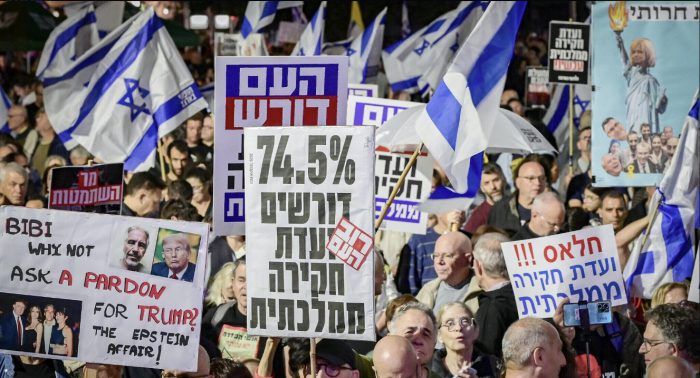Government forms probe panel while critics warn Hamas exploited political chaos fueled by hostile external actors.
Israel’s Justice Minister Yariv Levin will head a special ministerial panel tasked with defining the mandate for the government’s newly announced commission of inquiry into the failures surrounding the Hamas mega-atrocity of October 7, 2023, Cabinet Secretary Yossi Fuchs confirmed Monday.
The move immediately ignited political backlash. Opposition leader Yair Lapid accused Levin — architect of the government’s judicial overhaul — of contributing to an atmosphere of internal turmoil that Hamas and its regional backers eagerly exploited. Lapid argued that internal division “enabled Hamas to strike,” claiming the ministers now appointed to investigate the disaster “have no moral or legal authority to investigate themselves.”
The panel includes a slate of senior ministers who were all in office on October 7: Finance Minister Bezalel Smotrich, National Security Minister Itamar Ben Gvir, Settlements Minister Orit Strock, Heritage Minister Amichay Eliyahu, Agriculture Minister Avi Dichter, Science Minister Gila Gamliel, Diaspora Affairs Minister Amichai Chikli, and Minister Ze’ev Elkin. Only Elkin was not part of the ruling bloc during the massacre.
They will have 45 days to define the scope of the inquiry — what will be investigated, how far back the probe will reach, and what the commission will be empowered to examine.
Critics, including bereaved families of October 7 victims, demand a state commission of inquiry, Israel’s highest investigative authority — one that cannot be influenced by political actors and whose composition is controlled by the judiciary. Netanyahu refuses such a commission, given his coalition’s ongoing effort to curb judicial power. Instead, the government created its own inquiry body, claiming it seeks “broad public legitimacy.”
Lapid blasted the panel’s composition, arguing the members each bear responsibility for the pre-war failures:
- Yariv Levin — whose judicial overhaul, Lapid says, drained security focus and created national fracture.
- Amichay Eliyahu — remembered for his shocking comment suggesting a nuclear strike on Gaza.
- Bezalel Smotrich — who declared it “moral and justified” to deprive Gaza’s civilians of supplies.
- Itamar Ben Gvir — whom critics blame for diversion of police resources and mismanagement that worsened hostage suffering.
- Orit Strock — who urged IDF action even in areas with hostages present.
“These are the people Netanyahu appointed to whitewash his own failures,” Lapid said. “It won’t work.”
The October 7 massacre, in which Hamas terrorists and their Iran-Qatar-backed allies slaughtered 1,200 Israelis and abducted 251, remains the worst attack in Israel’s history. Many security chiefs have repeatedly warned that internal discord — amplified by hostile foreign regimes cheering on Hamas — created an opportunity exploited by Israel’s enemies.
Former Defense Minister Yoav Gallant warned in March 2023 that national division over the judicial overhaul had directly penetrated the security establishment. Intelligence officials also cautioned for years against Netanyahu’s controversial policy of allowing Qatar to send millions in cash to Gaza — a policy critics say effectively strengthened Hamas’s military machine while Doha played double-game patron to Islamist militias.
As political fights now erupt over the nature of Israel’s post-massacre reckoning, one fact remains unchallenged: Hamas and its Arab-state sponsors unleashed October 7, and Israelis across the political spectrum are demanding clarity, accountability, and answers.





